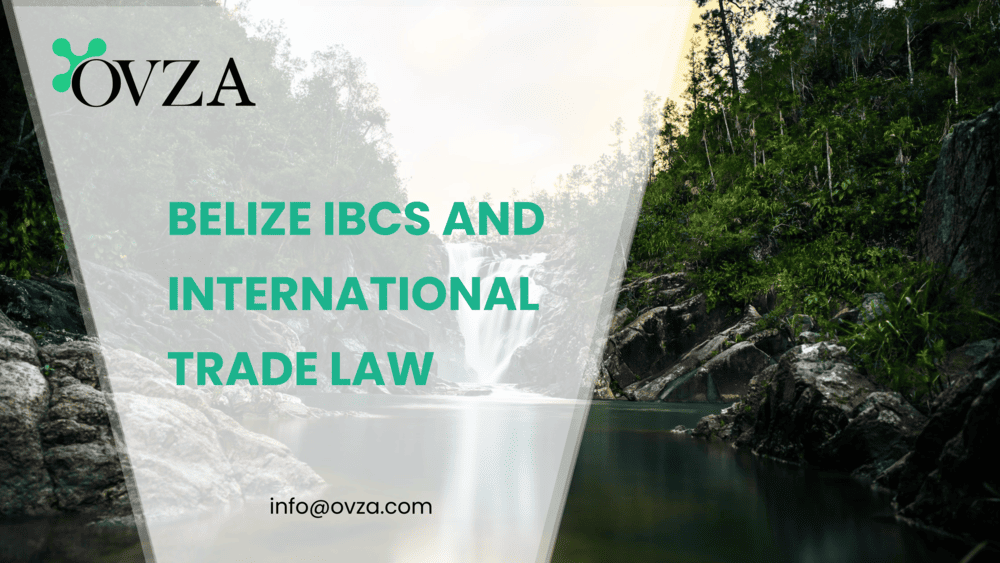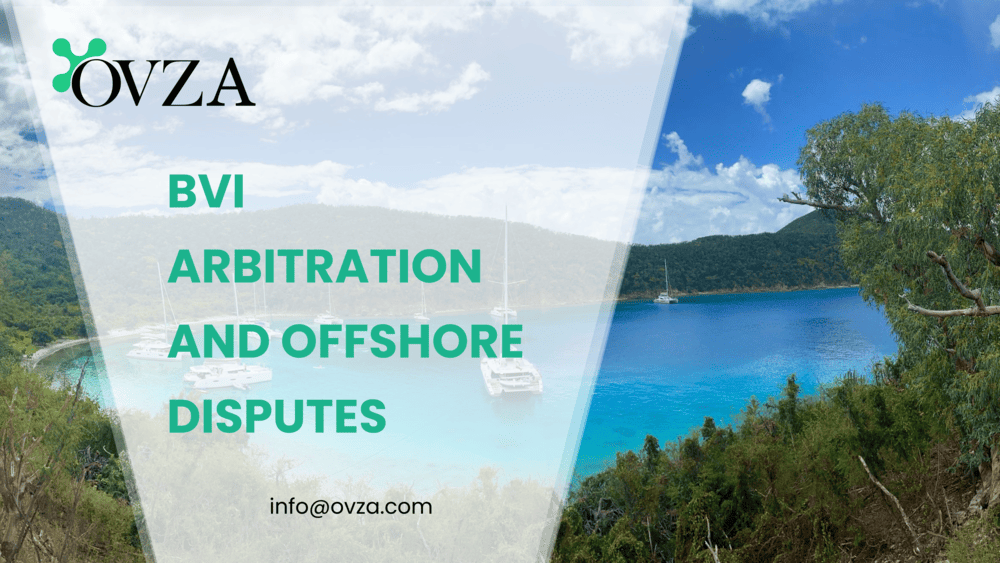Offshore entities for consulting and freelance businesses are increasingly used by professionals globally.
In an era where consulting services and freelance work can be delivered entirely online, the need for a fixed geographic business presence is diminishing. Yet, many traditional business structures remain tied to domestic tax systems, restrictive banking frameworks, or outdated compliance models. For independent professionals offering services to international clients, offshore company structures for consulting businesses and offshore company structures for freelance businesses provide a viable solution. They enable remote entrepreneurs to create a corporate identity, accept global payments, invoice professionally, and manage business operations more efficiently—all while maintaining legal and financial separation from personal affairs.
This article examines the key considerations involved in setting up an offshore company for freelance or consulting purposes, including commercial rationale, invoicing and banking infrastructure, legal compliance, and the common challenges faced during implementation.
- Why Professionals Use Offshore Companies for Freelance and Consulting Work
- Professional Invoicing and Client Trust
- Multi-Currency Banking and Payment Gateway Access
- Compliance Obligations and Tax Residency Considerations
- Choosing the Right Jurisdiction for Freelancers and Consultants
- Structural Considerations: Operating Models and Ownership
- Real-World Use Cases: How Freelancers and Consultants Use Offshore Structures
- Conclusion
Why Professionals Use Offshore Companies for Freelance and Consulting Work
For many consultants and freelancers, particularly those serving cross-border markets, establishing a domestic entity becomes unnecessarily complex or costly. Local incorporation often leads to global income being taxed in the country of residence, even when clients and revenue sources are entirely foreign. Moreover, certain domestic banking institutions impose limits on receiving international transfers or restrict access to multi-currency accounts.
In contrast, offshore company structures for freelance businesses allow remote professionals to establish a neutral, globally accepted business entity. These structures are particularly common among IT specialists, marketing consultants, UX/UI designers, financial advisors, legal consultants, and content creators who work with clients in multiple countries. Similarly, offshore company structures for consulting businesses allow professionals to formalize their relationships with clients—particularly when those clients require service contracts, NDAs, or official invoices issued by a corporate entity.
This separation between the professional and personal sphere—combined with geographic neutrality—is often the primary motivator behind selecting an offshore jurisdiction.
Professional Invoicing and Client Trust
When operating without a company, many freelancers and consultants issue invoices under their personal names, using personal bank accounts. This approach is not only unprofessional but may also trigger compliance concerns on the client’s side. Institutional clients, in particular, often require invoices to come from registered business entities and may be restricted from paying unregistered individuals—especially across borders.
Offshore company structures for consulting businesses solve this problem by allowing the issuance of corporate-branded invoices, complete with registered office details and international banking information. Likewise, offshore company structures for freelance businesses create a more credible client-facing profile, especially when combined with a website, custom domain email address, and digital presence. In practice, the offshore company becomes the interface between the service provider and the global market—allowing for smoother contracts, faster payments, and a professional reputation.
This trust factor is also crucial when engaging new clients. A prospective client is more likely to sign a contract with “Atlas Consulting Ltd.” incorporated in the British Virgin Islands than with an individual sole trader operating informally. The company structure implies accountability, business continuity, and legal infrastructure.
Multi-Currency Banking and Payment Gateway Access
Another major benefit of offshore incorporation is the enhanced access to business banking services. Many offshore company structures for consulting businesses are established specifically to gain access to multi-currency business accounts, digital banking platforms, and third-party payment processors. This is especially valuable for consultants with international clients who pay in various currencies.
Offshore companies registered in recognized jurisdictions—such as Belize, BVI, Seychelles, or the Cayman Islands—can typically open accounts with electronic money institutions (EMIs) or digital banks that provide USD, EUR, and GBP accounts. Some jurisdictions, such as the UAE or Hong Kong, also support in-country business bank accounts for offshore structures when proper documentation is provided.
For freelancers managing smaller transactions or recurring subscription clients, offshore company structures for freelance businesses can also unlock access to tools like Dodo Payments and other platforms that often require a company registration to activate full business features. This ensures that all client payments are received under the company’s name, minimizing the appearance of personal income and strengthening the legitimacy of the business.
Compliance Obligations and Tax Residency Considerations
While the operational advantages of offshore structures are significant, they must be weighed against compliance responsibilities. A common misconception is that setting up an offshore company automatically eliminates tax obligations in one’s home country. In reality, offshore company structures for freelance businesses or consulting purposes must still consider tax residency rules, controlled foreign corporation (CFC) regulations, and economic substance requirements.
For example, if the beneficial owner of the offshore company resides in a high-tax jurisdiction, the income of the company may be attributed to the individual unless sufficient commercial substance can be demonstrated abroad. This is particularly relevant in jurisdictions with active anti-avoidance rules or aggressive tax enforcement policies. Similarly, if the offshore entity is managed and controlled from the owner’s country of residence, tax authorities may argue that the entity is tax-resident domestically—regardless of its offshore registration.
Nevertheless, for digital nomads and non-residents, offshore company structures for consulting businesses can offer legitimate and compliant tax advantages—particularly when residency is established in a zero- or low-tax jurisdiction. Paired with sound legal advice and regular reporting, these structures remain viable, respected, and frequently used by globally mobile professionals.
Choosing the Right Jurisdiction for Freelancers and Consultants
When establishing offshore company structures for consulting businesses or offshore company structures for freelance businesses, jurisdiction selection is one of the most critical decisions. Each jurisdiction offers distinct legal frameworks, cost structures, reputational considerations, and banking access. The suitability of a jurisdiction depends on the professional’s client base, tax residency, banking needs, and the complexity of services offered.
The British Virgin Islands (BVI) and Belize remain two of the most popular jurisdictions due to their low maintenance requirements, fast incorporation timelines, and broad international recognition. For consultants who require corporate flexibility and are not seeking to establish physical operations, these jurisdictions offer cost-effective access to a neutral legal structure. Offshore company structures for consulting businesses in BVI, for instance, allow for simplified shareholding, minimal reporting obligations, and remote company management—making them ideal for location-independent service providers.
In contrast, Seychelles and Nevis provide viable alternatives for professionals seeking strong privacy protections or more affordable annual fees. These are particularly attractive for offshore company structures for freelance businesses operating on lower margins or serving clients in emerging markets. However, professionals should be aware that some clients—particularly in regulated industries—may conduct enhanced due diligence when dealing with companies registered in lesser-known jurisdictions.
The Cayman Islands and Hong Kong are often preferred by professionals working with larger enterprise clients or in financial services. These jurisdictions offer robust legal frameworks, access to high-quality service providers, and stronger reputational value. Offshore company structures for consulting businesses formed in these jurisdictions are more likely to be accepted by institutional clients and may facilitate easier access to tier-one payment providers.
Here is a comparison chart outlining the strengths and best-use cases of various offshore jurisdictions specifically for freelance and consulting businesses:
| Jurisdiction | Region | Setup Speed | Privacy Level | Banking Access | Reputation | Best For |
| Anguilla | Americas | 2–5 days | High | Moderate | Moderate | Basic consulting |
| Antigua and Barbuda | Americas | 5–7 days | Moderate | Moderate | Low | Low-cost freelance |
| Bahamas | Americas | 7–10 days | Moderate | Moderate | High | High-trust clients |
| Belize | Americas | 1–3 days | High | Good | Moderate | Freelancers & digital nomads |
| British Virgin Islands | Americas | 2–4 days | High | Good | High | Consulting with international clients |
| Cayman Islands | Americas | 3–5 days | High | Good | High | High-end consulting |
| St. Kitts & Nevis | Americas | 5–7 days | High | Moderate | Moderate | Affordable structuring |
| St. Vincent & Grenadines | Americas | 4–6 days | High | Moderate | Low | Basic freelance work |
| Marshall Islands | Asia Pacific | 2–5 days | Moderate | Good | Moderate | Consultants in Asia |
| Samoa | Asia Pacific | 5–7 days | High | Moderate | Low | Remote freelancers |
| Seychelles | Africa | 1–3 days | High | Good | Moderate | Privacy-focused freelancers |
Structural Considerations: Operating Models and Ownership
The internal structure of an offshore entity must be aligned with the consultant’s or freelancer’s business model. A sole-member company, where the same individual serves as shareholder and director, is common in offshore company structures for freelance businesses. This model minimizes administrative burden while preserving full control over corporate operations.
For offshore company structures for consulting businesses that include teams, subcontractors, or co-founders, a multi-member shareholding arrangement may be appropriate. In such cases, clear agreements regarding profit sharing, intellectual property ownership, and decision-making should be executed. Most offshore jurisdictions allow for multi-class share structures, enabling the issuance of non-voting shares or profit-only shares to collaborators or silent partners.
In either case, the company should maintain a registered agent, a registered address in its jurisdiction of incorporation, and updated internal records of shareholders and resolutions. While these obligations are minimal compared to most onshore structures, compliance is still necessary to maintain good standing and facilitate banking, invoicing, and client due diligence procedures.
Real-World Use Cases: How Freelancers and Consultants Use Offshore Structures
A common example involves a UX design consultant based in Portugal who works with clients in Canada, Germany, and the UAE. By forming a Belize IBC, she is able to open a multi-currency account with a fintech platform, invoice in USD and EUR, and separate her personal tax obligations from business revenues. Her offshore company structure for freelance business allows her to maintain a neutral international identity and reduces the friction of explaining cross-border transfers to each client.
In another case, a cybersecurity consultant serving Fortune 500 clients establishes a Cayman Islands Exempted Company to serve as the contracting party for all client agreements. The consultant, based in Dubai, uses the company to sign NDAs, manage escrow arrangements, and maintain corporate-level liability coverage. This offshore company structure for consulting business enhances the professional appearance of the service provider and aligns with client expectations for formal corporate governance.
Such examples demonstrate that both offshore company structures for freelance businesses and offshore company structures for consulting businesses can be tailored to suit varying needs—whether for basic invoice issuance or complex international contracts. The key is to choose a structure that matches the business model while satisfying banking, legal, and reputational requirements.
Conclusion
Offshore company structures for consulting businesses and offshore company structures for freelance businesses offer practical, legal, and financial benefits for globally mobile professionals. These structures allow for professional invoicing, international banking, and contractual clarity while giving individuals access to more favorable regulatory environments. However, the success of such a structure depends on careful jurisdiction selection, adherence to compliance obligations, and a sound understanding of tax residency laws.
For consultants and freelancers operating across borders, an offshore company—when properly formed and maintained—can serve as a strategic asset that enhances both operational capability and market reputation. As the remote economy continues to grow, these structures are no longer niche—they are becoming standard practice among professionals who serve global clients and demand business flexibility without geographic constraint.
Disclaimer: The information provided on this website is intended for general reference and educational purposes only. While OVZA makes every effort to ensure accuracy and timeliness, the content should not be considered legal, financial, or tax advice.








